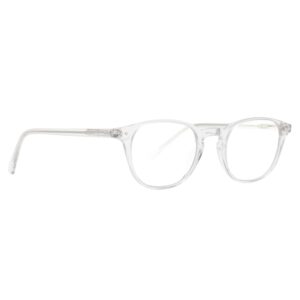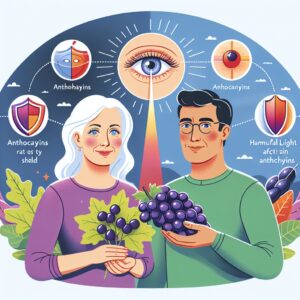
Key Takeaways
- Vitamin A is crucial for maintaining healthy vision and can prevent conditions like night blindness and age-related vision decline.
- Carrots, sweet potatoes, and leafy greens are among the top foods rich in vitamin A that can help improve your eye health.
- Incorporating vitamin A into your diet isn’t just about eating the right foods; it’s about preparing them in ways that maximize nutrient absorption.
- Understanding the role of vitamin A in eye health can motivate you to make dietary choices that support vision and overall well-being.
- Regular eye exams and attention to vision changes are essential, even with a vitamin A-rich diet, to maintain optimal eye health.
Unlock the Power of Vitamin A for Sharper Vision
When it comes to eye health, there’s one superhero nutrient that should never be overlooked: vitamin A. This essential vitamin is a cornerstone of good vision, playing a pivotal role in keeping our eyes functioning correctly and our vision sharp. But how exactly does it do this? Let’s dive in and explore the wonders of vitamin A for our eyes.
Understanding Vitamin A and Eye Health
Imagine your eye as a high-tech camera. Just like a camera needs the right lighting to capture a clear image, your eyes need vitamin A to see properly, especially in low-light conditions. Vitamin A is a component of rhodopsin, a protein in your eyes that helps you see in dim light. Without enough vitamin A, “night blindness” can occur, making it tough to see in the dark. But that’s not all; this nutrient is also essential for keeping the surface of your eyes, the cornea, healthy and clear.
Most importantly, maintaining adequate levels of vitamin A is a proactive step you can take to prevent the onset of certain eye diseases, such as age-related macular degeneration (AMD), which can lead to vision loss. Therefore, ensuring you get enough of this nutrient is key to reading and visual acuity.
How Vitamin A Supports Reading and Academic Success
For students and avid readers alike, sharp vision is non-negotiable. Imagine trying to focus on small print when your eyes are strained and your vision is blurry. Vitamin A comes to the rescue by supporting the ability to see fine details, which is crucial for reading and comprehension. Because our eyes are under constant strain from screens and books, fueling them with vitamin A can help keep your reading sessions productive and your learning on track.
Besides that, children who are still growing need vitamin A to support the development of their eyes. A diet rich in this nutrient can help them maintain sharp vision, which is critical for their academic performance and overall quality of life.
Nourishing Your Eyes: Diet for Optimal Vision
To keep your eyes healthy, you’ll want to focus on a diet that’s rich in vitamin A. This means filling your plate with colorful fruits and vegetables, which are not only delicious but also brimming with this essential nutrient. But remember, it’s not just about what you eat; it’s also about how you prepare your food to ensure you’re getting the most vitamin A possible.
For instance, adding a little healthy fat to your meals can increase the absorption of vitamin A since it’s a fat-soluble vitamin. So don’t shy away from drizzling some olive oil over your roasted sweet potatoes or tossing your salad with an avocado dressing.

- Eat a rainbow of fruits and vegetables to cover your vitamin A needs.
- Combine vitamin A-rich foods with healthy fats for better absorption.
- Steam or roast vegetables to preserve their nutrient content.
By making these simple tweaks to your diet, you’ll be well on your way to supporting your eye health naturally. Stay tuned for more detailed guidance on the best foods to eat and delicious ways to prepare them!
Protecting Your Eyes: Vitamin A and Eye Disease Prevention
It’s a well-known fact that what you eat can have a profound impact on your health, and when it comes to your eyes, vitamin A is the nutrient you can’t afford to miss. It’s a powerful ally in the battle against eye diseases and vision deterioration.
By ensuring you have enough vitamin A in your diet, you’re not just improving your vision; you’re actively working to safeguard your eyes against future problems. This proactive approach is crucial in maintaining eye health over time.
Preventing Age-Related Vision Loss with Vitamin A
Age-related vision loss, particularly conditions like age-related macular degeneration (AMD), can be a daunting prospect. However, a diet rich in vitamin A can play a protective role. The retina, which is critical for vision, relies on vitamin A to function properly. By consuming adequate amounts of this vital nutrient, you can help preserve your retinal health and maintain your quality of vision as you age.
But it’s not just about eating foods high in vitamin A. It’s also about lifestyle choices that support eye health, such as wearing sunglasses to protect your eyes from harmful UV rays, which can exacerbate conditions like AMD.
Fighting the Fog: Tackling Dry Eyes and Other Common Conditions
Dry eyes can be more than just uncomfortable; they can also impact your vision. Vitamin A plays a role in maintaining the health of your tear film, which keeps your eyes moist and clear. A deficiency in this nutrient can lead to dry, scratchy eyes and, over time, more serious conditions like keratomalacia, which can damage the cornea.
Therefore, ensuring you’re getting enough vitamin A through your diet or supplements can help prevent these uncomfortable and potentially damaging conditions. It’s a simple step that can have a significant impact on your daily comfort and long-term eye health.
Eye Care Essentials: Beyond Diet
While a vitamin A-rich diet is essential for eye health, it’s not the only thing you should focus on. There are other important factors to consider when it comes to maintaining your vision. Here are a few key habits to keep in mind:
Remember, it’s not just about what you put on your plate; it’s also about taking care of your eyes in other ways. This includes regular breaks from screens to reduce eye strain and exercises that can help improve eye health and function.
Don’t forget to keep your eyes protected from the sun with UV-blocking sunglasses, and always stay hydrated to support overall eye moisture.
Exercises and Habits to Complement Vitamin A Intake
Complementing your vitamin A intake with eye exercises can be beneficial. Simple practices like focusing on different distances to strengthen eye muscles or the ’20-20-20 rule’ (every 20 minutes, look at something 20 feet away for at least 20 seconds) can help reduce eye strain.

“Opinion: Why Olympic esports works for …” from sac.media and used with no modifications.
Tom, an avid gamer, started practicing the ’20-20-20 rule’ during his gaming sessions. He noticed a decrease in headaches and eye fatigue, which allowed him to enjoy his hobby more comfortably and for longer periods.
Good sleep is also essential for eye health, as it allows your eyes to rest and recover from the day’s activities. And don’t underestimate the power of hydration; drinking plenty of water is vital for maintaining the natural tear film that keeps your eyes moist and comfortable.
When to See an Eye Specialist: Signs and Symptoms Not to Ignore
While a vitamin A-rich diet and healthy habits are key to maintaining good eye health, it’s crucial to recognize when professional help is needed. If you notice any changes in your vision, such as blurriness, double vision, or difficulty seeing at night, it’s time to see an eye specialist.
Regular eye exams are important for everyone, but especially if you have a family history of eye disease. An eye specialist can provide a comprehensive assessment and help you address any issues before they become more serious.
Your Visionary Journey: Starting a Vitamin A-Rich Lifestyle
Embarking on a journey to improve your eye health through a vitamin A-rich lifestyle is a commitment to your overall well-being. It’s about making conscious choices every day that will benefit your eyes and, by extension, your quality of life.
Creating a Tailored Eye Health Plan
Every person’s eyes are unique, so it’s important to create a tailored plan that addresses your specific needs. This might involve adjusting your diet to include more vitamin A-rich foods, or it could mean taking supplements if you’re unable to get enough from food alone.
It’s also about understanding your own risk factors and working with a healthcare professional to monitor your eye health over time.
- Identify your personal risk factors for eye disease.
- Adjust your diet to ensure you’re getting enough vitamin A.
- Consider supplements if necessary, under the guidance of a healthcare professional.
- Schedule regular eye exams to catch any issues early.
By taking these steps, you can create a solid foundation for maintaining healthy vision throughout your life.
Tips for Sustaining Healthy Vision Through the Years
As you continue on your visionary journey, there are several tips to keep in mind that can help you maintain healthy vision as you age:
First, consistency is key. Make sure you’re regularly consuming vitamin A-rich foods and sticking to your eye health plan. It’s the daily habits that add up to long-term health benefits.
Second, be mindful of your overall health. Conditions like diabetes can affect your vision, so managing your health holistically is important.
Finally, stay informed. Keep up with the latest research on eye health and be open to adjusting your approach as new information becomes available.
Frequently Asked Questions (FAQ)
When it comes to eye health and vitamin A, there are often many questions. Here are some answers to the most commonly asked questions:
How much Vitamin A do I need for optimal eye health?
The recommended daily allowance (RDA) for vitamin A varies depending on age, gender, and life stage. Generally, adult men need about 900 micrograms (mcg) per day, while adult women need about 700 mcg per day. However, it’s best to consult with a healthcare provider for personalized advice.
Can taking Vitamin A improve my existing eye conditions?
While vitamin A can support overall eye health, it’s not a cure-all for existing conditions. However, in some cases, such as with night blindness due to a deficiency, increasing vitamin A intake can lead to improvements. Always consult with an eye specialist for treatment options.
Are there any risks associated with high Vitamin A intake?
Yes, consuming too much vitamin A, particularly in the form of supplements, can lead to toxicity. Symptoms include nausea, headaches, and dizziness. It’s important to stick to the recommended amounts and consult with a healthcare professional before starting any new supplement regimen.
How quickly can I expect to see changes in my vision after increasing my Vitamin A intake?
Changes in vision from increasing vitamin A intake will vary from person to person. If you’re correcting a deficiency, improvements can be noticed relatively quickly. However, for general eye health maintenance, the benefits of a vitamin A-rich diet are more about long-term protection and health.
Are Vitamin A supplements as effective as dietary sources for eye health?
Dietary sources of vitamin A are generally preferred because they come with additional nutrients that support overall health. However, supplements can be effective, especially for those who have trouble meeting their needs through diet alone. It’s important to choose high-quality supplements and to take them as directed.


